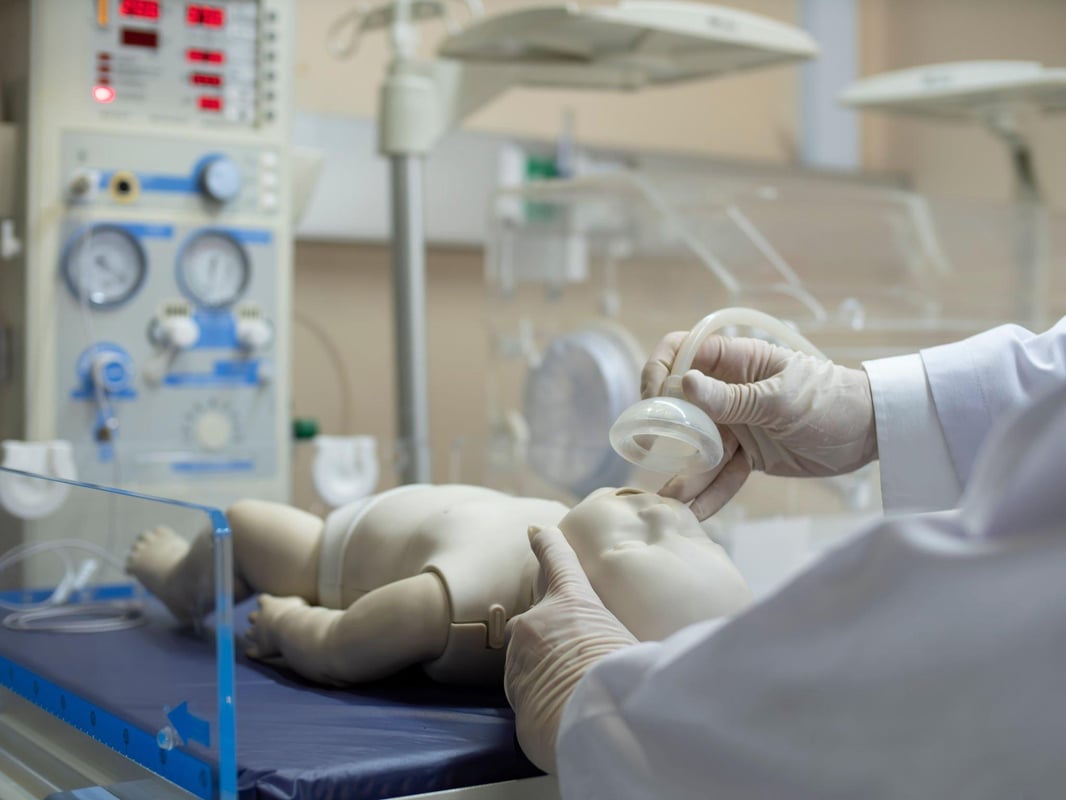
Financial aid (may be available)

Financial aid (may be available)

Financial aid (may be available)

Financial aid (may be available)
$276 total
$2,075 total
$270 total
$410 total
$365 total
$150 total
No cost info
$285 total
$150 total
No cost info
Welcome to this comprehensive guide for those of you searching for Pediatric Advanced Life Support (PALS) classes in Springfield. We'll delve into what PALS is, the training requirements, what to expect from a class, and how to find related jobs. We will also discuss the certification process and what other classes you can take after becoming a PALS certified professional.

Pediatric Advanced Life Support (PALS) is a series of protocols and procedures that medical professionals use when providing life-saving care for children and infants. These protocols are designed to tackle serious health scenarios such as respiratory failure, cardiac arrest, and shock in pediatric patients. A PALS certification attests that a healthcare professional is trained and competent in these procedures.
Before enrolling in a PALS class, certain prerequisites must be met:
Basic Life Support (BLS) certification: This is a prerequisite for most PALS courses. BLS teaches basic life-saving techniques like CPR and using an Automated External Defibrillator (AED).
Understanding of ECG Rhythm Interpretation: Since PALS often involves treating cardiac emergencies, an understanding of ECG rhythm interpretation is crucial.
Healthcare Provider Status: PALS training is typically designed for healthcare providers like nurses, physicians, paramedics, and respiratory therapists who may need to provide advanced life support to pediatric patients.
When searching for a PALS class, consider the following:
Accreditation: Ensure the course is accredited by a reputable organization, like the American Heart Association (AHA). This guarantees that the course meets the necessary standards.
Comprehensive Curriculum: The course should cover all necessary topics, including pediatric assessment, basic life support, PALS treatment algorithms, and effective resuscitation team dynamics.
Hands-On Training: Look for courses that offer practical training, as PALS is a very hands-on field. This could involve using mannequins to simulate real-life emergencies or team-based scenarios.
PALS classes typically combine theoretical learning with practical training. You can expect to learn through a mix of lectures, videos, textbooks, and hands-on exercises. Topics covered may include pediatric emergencies, infant CPR, effective communication within the resuscitation team, and more.
The PALS certification process usually involves two main components:
Course Completion: You need to fully complete the course, which includes passing all required tests and demonstrating competence in all the necessary skills.
Final Exam: At the end of the course, you'll take a final exam. You need to pass this exam to obtain your PALS certification.
With a PALS certification, you can explore job opportunities in various healthcare settings, including hospitals, clinics, and emergency medical services. Some job titles might include Pediatric Nurse, Paramedic, or Respiratory Therapist.
Once you have your PALS certification, you might consider taking additional classes to broaden your skills, such as:
Advanced Cardiovascular Life Support (ACLS): This course builds upon the skills learned in PALS and BLS, focusing on adults.
Neonatal Resuscitation Program (NRP): This course is designed for healthcare professionals involved in the delivery and care of newborns.
Continuing education is critical in the healthcare field, especially for those involved in life-saving procedures like PALS. Regular training updates ensure that you stay current with the latest protocols and techniques.
Online learning can be a flexible solution for busy healthcare professionals looking to acquire or renew their PALS certification. Many reputable institutions offer online PALS courses, combining digital learning materials with virtual or in-person practical sessions.
Networking with other healthcare professionals and participating in professional development opportunities can help you stay abreast of the latest developments in your field. This could involve attending conferences, joining professional associations, or participating in online forums.
Specializing in a particular area of pediatric care can make you more valuable to employers and can enhance your career prospects. This could involve becoming an expert in pediatric cardiac care, neonatal care, or pediatric emergency medicine.
Becoming PALS certified is a valuable step in your healthcare career, equipping you with the skills to save young lives in critical situations. Whether you're just starting your career or looking to enhance your skills, PALS training is a worthwhile investment.
Remember, when choosing a PALS class, consider the course's accreditation, curriculum, and hands-on training opportunities. Furthermore, don't forget to explore related job opportunities and additional classes to continue growing professionally.
For more detailed information on related healthcare fields, check out these blog posts on how to become a certified medication aide in Pennsylvania, how to become a psychiatric technician in Pennsylvania, and how to become a phlebotomist in Pennsylvania.
Dreambound has written dozens of in-depth guides on how to get started in this field, with information specific to your city. If you're located somewhere else or thinking about moving, check out some other guides we've written:
Contemplating a change in your career path? Dreambound has written many comprehensive guides to aid you in making well-informed decisions.
Dreambound's platform allows prospective students to find the right educational program for them through searching, filtering, and connecting with our extensive selection of career & technical education partners.
Dreambound has over 70 programs across healthcare, technology, business, and industrial trades. This includes programs such as Medical Billing, Cybersecurity, and welding.
Some of our schools offer financial aid for those who qualify. Many others offer payment plans, where you can pay the cost of class over time.
Yes, Dreambound offers many online programs. On Dreambound's search, you can filter by online, in-person, and hybrid (part online, part in-person).
Dreambound is completely free for you to use! We are supported by schools and organizations who pay to advertise on our website, so we can offer all of our career resources for free.